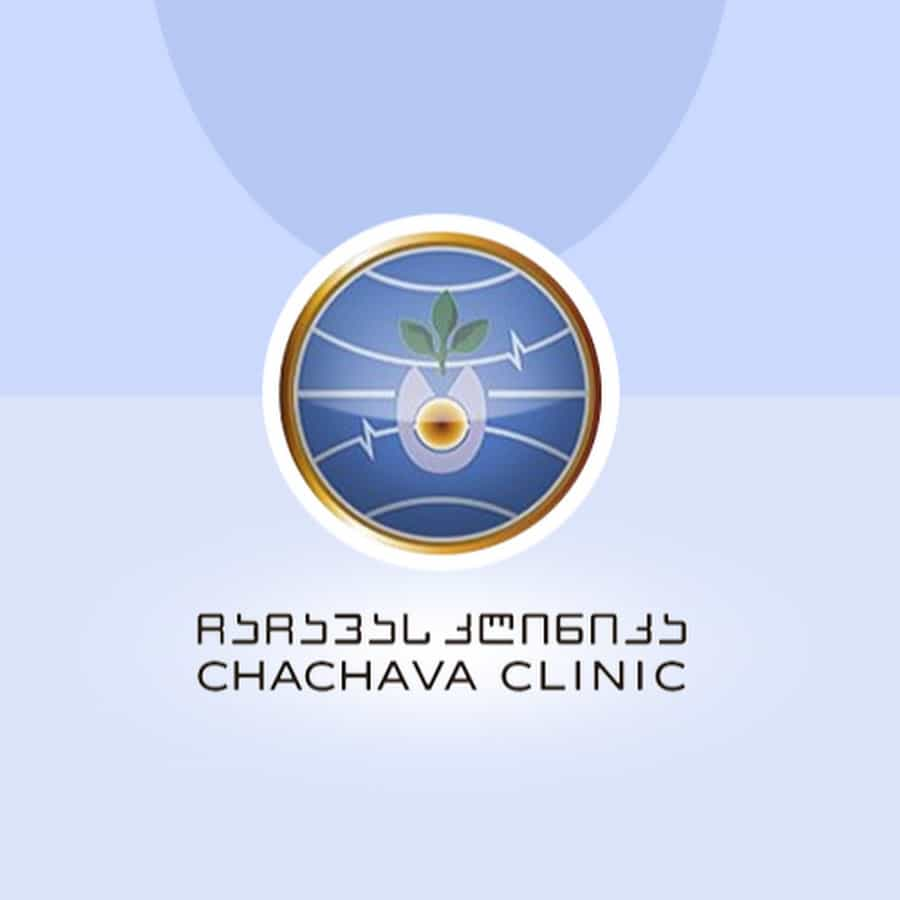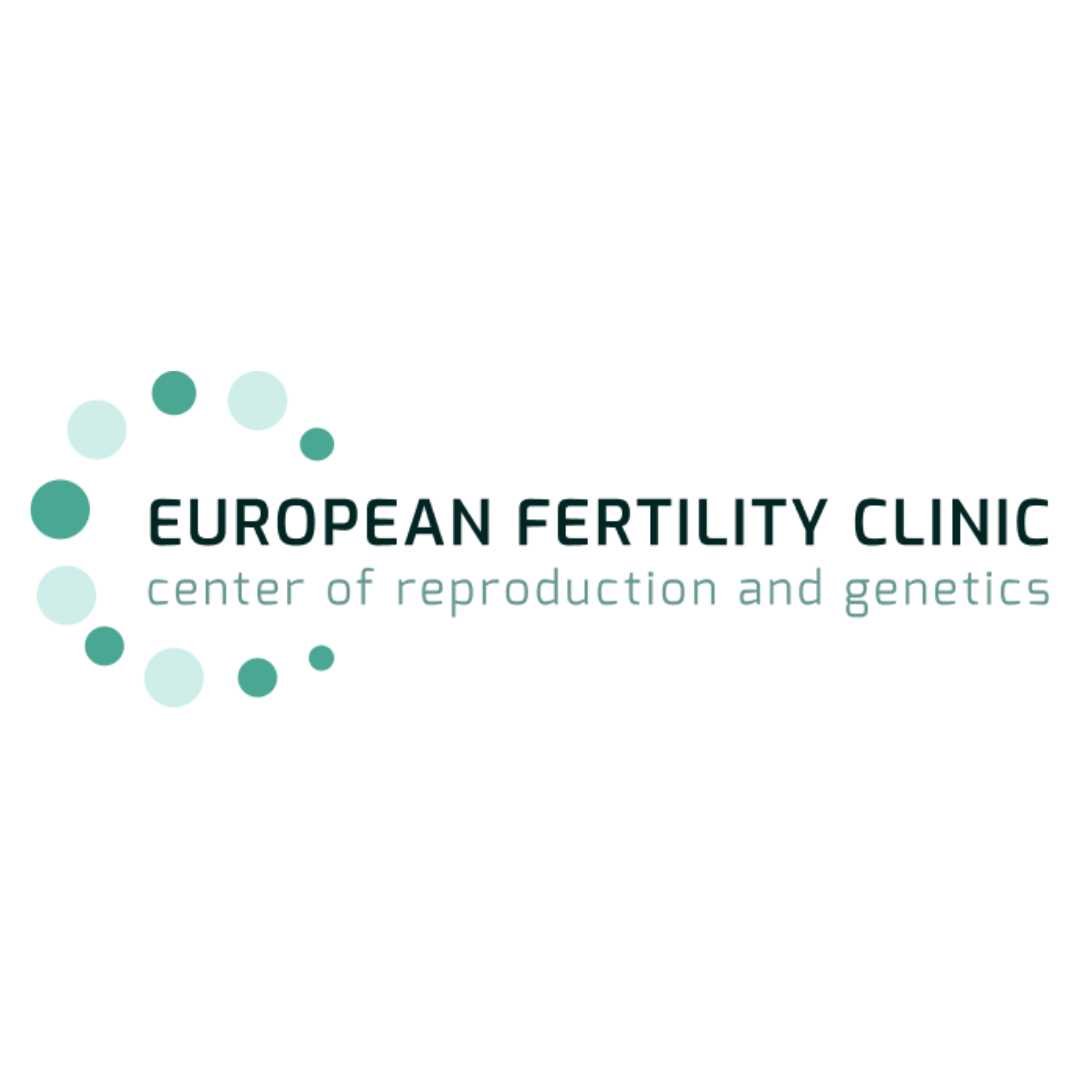Affordable Surrogacy Georgia: Costs Explained
.png)
Considering surrogacy in Georgia to grow your family is a significant decision, and one of the first questions that comes to mind is undoubtedly the cost. The cost of surrogacy in Georgia is generally more affordable than in many Western countries, typically ranging from $40,000 to $70,000. This range can fluctuate based on various factors, including the specific clinic, the type of surrogacy program, and whether additional services like egg donation are required.
This blog post aims to provide a detailed breakdown of the surrogacy costs in Georgia, addressing the common questions and concerns of intended parents. We'll delve into what's typically included in these costs, factors that can influence the final price, and how Georgia compares to other popular surrogacy destinations. Our goal is to offer a human, approachable, and expert perspective to help you navigate this important journey.
What is the average cost of surrogacy in Georgia?
"The average cost of surrogacy in Georgia typically falls between $45,000 and $65,000, encompassing medical procedures, surrogate compensation, agency fees, and legal services."
This average provides a general estimate, but it's crucial to understand that individual circumstances can lead to variations. Some "guaranteed baby" programs, which may include unlimited IVF cycles or surrogate attempts until a live birth, can range towards the higher end, around $55,000 to $70,000. Conversely, simpler programs or those where intended parents have existing embryos might be closer to the lower end of the spectrum. It's essential to get a detailed cost breakdown from your chosen surrogacy agency in Georgia.
The relative affordability of surrogacy in this country compared to places like the USA (where costs can exceed $100,000 or even $150,000) makes it an attractive option for many international intended parents. This cost-effectiveness, combined with a favorable legal framework for heterosexual couples, has positioned Georgia as a prominent destination for surrogacy.
What factors influence the cost of surrogacy in Georgia?
"Several factors influence the surrogacy cost in Georgia, including the specific agency's fees, the surrogate mother's compensation and expenses, the complexity of medical procedures (like IVF and PGD), the need for an egg or sperm donor, and legal consultation fees."
Let's break down these influencing factors:
- Agency Fees: Reputable surrogacy agencies charge for their services, which include matching intended parents with a surrogate, coordinating medical appointments, managing legal processes, and providing overall support. These fees can vary between agencies.
- Surrogate Compensation: A significant portion of the cost goes towards compensating the surrogate mother for her time, effort, and the physical demands of pregnancy. This also includes her living expenses, maternity wear, and any lost wages.
- Medical Expenses: This is a broad category that includes IVF procedures, embryo transfer, prenatal care, and delivery costs. The number of IVF cycles needed for a successful pregnancy can impact this component. Preimplantation Genetic Diagnosis (PGD) to screen embryos for genetic conditions will also add to the medical expenses.
- Egg or Sperm Donor Costs: If intended parents require an egg or sperm donor, this will incur additional costs for donor compensation, screening, and medical procedures related to the donation.
- Legal Fees: Legal services are vital for drafting and reviewing the surrogacy agreement, establishing parental rights, and ensuring all legal processes in Georgia are correctly followed.
- Travel and Accommodation: International intended parents need to factor in the costs of traveling to Georgia for initial consultations, embryo transfer (if applicable), and for the birth of the child, as well as accommodation during these visits.
- Insurance: Ensuring adequate medical insurance for the surrogate mother during pregnancy and delivery is crucial and will be part of the overall cost.
Understanding these variables will help you have a more realistic expectation of the total price of surrogacy in Georgia.
Are there additional or hidden fees in Georgian surrogacy programs?
"While reputable surrogacy agencies in Georgia strive for transparency, potential additional fees can arise from unforeseen medical complications, multiple IVF attempts if not part of a guaranteed package, newborn medical care if required, or specific legal needs beyond standard contracts. It's crucial to discuss all potential costs upfront."
Most comprehensive surrogacy packages aim to be all-inclusive, but it's wise to clarify what "all-inclusive" truly covers. For example, if a "guaranteed" program isn't chosen, repeated IVF cycles or the need to match with a new surrogate if the first attempt is unsuccessful could lead to extra charges. Medical complications during pregnancy or childbirth, although not common, can also result in higher medical bills.
Other potential additional costs might include:
- Newborn Intensive Care Unit (NICU): If the baby requires specialized medical care after birth.
- DNA Testing: For parentage confirmation, if required by your home country.
- Translation Services: For documents or communication if not included.
- Shipping of Embryos or Gametes: If you have them stored elsewhere.
- Unexpected Travel: If additional trips to Georgia become necessary.
Always ask your agency for a detailed list of what is and isn't included in their quoted surrogacy price and inquire about contingency plans for unexpected expenses.
What is typically included in Georgia surrogacy packages?
"Georgian surrogacy packages typically include surrogate screening and matching, all IVF and embryo transfer procedures, surrogate compensation and care (including medical check-ups and accommodation if needed), legal fees for the surrogacy agreement and birth registration, and agency coordination fees."
A standard package from a good surrogacy clinic in Georgia usually covers the core components of the surrogacy journey. This often means:
- Surrogate Selection and Screening: Rigorous medical and psychological screening of potential surrogates.
- IVF Process: Including ovarian stimulation for the intended mother or egg donor, egg retrieval, fertilization, and embryo culture.
- Embryo Transfer: The medical procedure of transferring the embryo(s) to the surrogate's uterus.
- Surrogate Mother's Compensation and Support: This covers her base compensation, monthly allowances for expenses, maternity clothing, and sometimes travel expenses for clinic visits. Some agencies also provide dedicated housing for surrogates.
- Prenatal Care: Regular medical check-ups, ultrasounds, and all necessary medical attention for the surrogate throughout the pregnancy.
- Childbirth Costs: Including hospital fees for a natural delivery or a C-section if medically necessary.
- Legal Services: Drafting the surrogacy contract, ensuring compliance with Georgian law, and assistance with obtaining the baby's birth certificate with the intended parents' names.
- Agency Service Fees: For the overall management and coordination of the program.
- Logistical Support: Some agencies offer assistance with travel arrangements and accommodation for intended parents.
It's important to review the specifics of what each surrogacy agency includes in their packages, as there can be variations. Some may offer "guaranteed programs" that cover multiple attempts, which can provide financial peace of mind.
How does the cost of surrogacy in Georgia compare to other countries?
"The cost of surrogacy in Georgia is significantly lower than in countries like the USA (often $100,000-$200,000+) and Canada (around $75,000+). It is often comparable to or slightly more affordable than some other European destinations like Ukraine, while typically being more expensive than surrogacy in some Asian or African countries, though legal frameworks and services can vary greatly."
Here's a general comparison:
- USA: Often the most expensive, with costs frequently ranging from $120,000 to $200,000 or even higher, especially with agency fees, high surrogate compensation, and expensive medical care.
- Canada: While altruistic surrogacy is permitted (surrogates can only be reimbursed for expenses), the overall costs, including agency and legal fees, can still be substantial, often around $75,000 to $100,000. Commercial surrogacy is illegal.
- Ukraine: Historically, costs were similar to or slightly lower than Georgia, but the current geopolitical situation has significantly impacted surrogacy programs there.
- Other European Countries: Costs vary widely. Some Western European countries have outright bans or highly restrictive laws. Eastern European countries may offer more affordable options, but legal protections and program quality must be carefully vetted.
- Mexico: Emerging as a destination, with costs potentially ranging from $45,000 to $75,000, but the legal landscape can be complex and varies by state.
Georgia strikes a balance by offering relatively affordable surrogacy options combined with a well-established legal framework that (for heterosexual couples) clearly defines intended parents as the legal parents from birth, without requiring adoption. This legal security is a major draw, alongside the lower overall price.
What are the legal costs associated with surrogacy in Georgia?
"Legal costs for surrogacy in Georgia typically range from $3,000 to $8,000. This fee covers the drafting and review of the surrogacy agreement by qualified lawyers, ensuring it complies with Georgian law, and assistance with the legal processes for establishing parentage and obtaining the child's birth certificate."
The legal aspect is a cornerstone of a secure surrogacy journey. In Georgia, the law (specifically Article 143 of the Law of Georgia on Health Protection) permits gestational surrogacy for heterosexual couples (married or in a de facto relationship for at least one year) who have a medical reason for needing a surrogate. The law clearly states that the intended parents are the legal parents of the child from the moment of conception, and the surrogate mother has no parental rights.
The legal fees cover:
- Drafting the Surrogacy Agreement: This is a comprehensive contract outlining the rights and responsibilities of both the intended parents and the surrogate mother. It covers aspects like compensation, medical decisions, and contingencies.
- Legal Review: Ensuring the agreement is fair, legally sound, and protects the interests of all parties.
- Parentage Establishment: Facilitating the legal procedures to ensure the intended parents' names are on the child's birth certificate immediately after birth. This typically doesn't require a court order or adoption process for eligible couples in Georgia.
- Coordination with Local Authorities: Liaising with the Public Service Development Agency for birth registration.
These legal costs for surrogacy in Georgia are crucial for a smooth and legally secure process.
How much are agency fees for surrogacy in Georgia?
"Surrogacy agency fees in Georgia can range from approximately $5,000 to $20,000, depending on the agency's reputation, experience, the range of services offered, and whether it's part of a larger, all-inclusive package."
When you choose to work with a surrogacy agency, their fee covers a wide array of essential services designed to guide you through the complex process. These services often include:
- Matching Services: Finding and screening suitable surrogate mothers who meet medical and psychological criteria.
- Case Management: A dedicated coordinator to oversee your entire journey, answer your questions, and liaise between you, the surrogate, and the clinic.
- Logistical Coordination: Arranging medical appointments, travel, and accommodation if needed.
- Support Services: Providing emotional support and counseling for both intended parents and the surrogate.
- Financial Management: Some agencies assist with managing payments to the surrogate and other service providers through an escrow account.
- Liaison with Clinics and Legal Teams: Ensuring smooth communication and processes between all involved parties.
While it might seem like an additional cost, a reputable agency's expertise and support can be invaluable in navigating the intricacies of international surrogacy and contribute to a more stress-free experience. When comparing surrogacy prices, ensure you understand exactly what is covered by the agency fee.
What are the typical medical expenses in a Georgian surrogacy journey?
"Medical expenses for surrogacy in Georgia typically range from $8,000 to $25,000 or more, covering IVF procedures, embryo transfer, prenatal care for the surrogate, and childbirth. Costs can increase with multiple IVF cycles, the need for an egg donor, or PGD testing."
The medical component is a significant part of the overall expenses. Key medical costs include:
- IVF and Embryo Creation: This covers ovarian stimulation for the intended mother or egg donor, egg retrieval, sperm preparation, fertilization (standard IVF or ICSI), and embryo culture. If an egg donor is used, her medical procedures and compensation are additional.
- Preimplantation Genetic Diagnosis (PGD/PGS): If you opt for genetic screening of embryos to check for chromosomal abnormalities or specific genetic conditions, this will add to the cost.
- Embryo Transfer: The procedure of transferring the selected embryo(s) into the surrogate mother's uterus.
- Surrogate Mother's Medical Screening: Ensuring she is medically fit for pregnancy.
- Prenatal Care: All medical check-ups, ultrasounds, blood tests, and medications for the surrogate throughout the pregnancy.
- Childbirth: Hospital fees for either a vaginal delivery or a Cesarean section, including obstetrician and anesthesiologist fees.
- Postnatal Care: Medical check-ups for the surrogate after delivery.
- Medications: For the intended mother/egg donor during ovarian stimulation and for the surrogate to prepare her uterus and support the pregnancy.
The exact medical costs can vary based on the chosen surrogacy clinic, the specific medical needs of the intended parents and surrogate, and whether any complications arise. "Guaranteed" programs may offer a fixed price for a certain number of attempts or until a live birth, which can help manage the unpredictability of medical costs.
How much is surrogate mother compensation in Georgia?
"Surrogate mother compensation as part of the surrogacy cost in Georgia typically ranges from $15,000 to $35,000. This amount is for her commitment, time, and the physical aspects of carrying the pregnancy and delivery, and also covers living expenses and potential lost income."
The compensation paid to the surrogate mother in Georgia is a vital part of the surrogacy arrangement and acknowledges her significant contribution. This compensation is usually paid in installments throughout the pregnancy, often starting after the confirmation of a fetal heartbeat.
The total compensation package generally includes:
- Base Compensation: The primary amount paid for carrying the pregnancy.
- Monthly Allowance: To cover living expenses, nutritious food, maternity clothing, and local travel for appointments.
- Additional Compensation for Multiples: If she carries twins or triplets, there is usually an additional payment.
- Compensation for Invasive Procedures: If specific medical procedures become necessary.
- Lost Wages: If she needs to take time off work due to the pregnancy or for recovery.
- Childcare and Housekeeping: If required, especially during later stages of pregnancy or bed rest.
It's important that the compensation is fair and clearly outlined in the surrogacy agreement. Agencies and clinics in Georgia ensure that surrogates are well-cared for and that all financial aspects are handled ethically and transparently. This compensation is a key component of the overall financial outlay.
What are the IVF and embryo transfer costs within a Georgian surrogacy program?
"The cost of IVF and embryo transfer in Georgia as part of a surrogacy program can range from approximately $5,000 to $15,000 per cycle. This includes medications, egg retrieval (if applicable), fertilization, embryo culture, and the embryo transfer procedure itself. Costs can be higher if donor eggs or PGD are involved."
In vitro fertilization (IVF) and embryo transfer are the core medical procedures in gestational surrogacy. The costs associated with these steps can be broken down as follows:
- Initial Consultations and Screenings: For intended parents and the surrogate.
- Ovarian Stimulation Protocol: Medications for the intended mother or egg donor to stimulate egg production.
- Egg Retrieval: A minor surgical procedure to collect the eggs.
- Sperm Collection and Preparation:
- Fertilization: Creating embryos in the laboratory using IVF or Intracytoplasmic Sperm Injection (ICSI).
- Embryo Culture: Growing the embryos in the lab for several days.
- Embryo Transfer: Placing the selected embryo(s) into the surrogate's uterus.
- Cryopreservation: Freezing any remaining viable embryos for future use, which may have an additional fee.
If an egg donor is used, her compensation, screening, and IVF-related procedures will add to these costs. Similarly, Preimplantation Genetic Diagnosis (PGD) or Preimplantation Genetic Screening (PGS) will incur extra fees. Many surrogacy clinics offer package prices that may include one or more IVF cycles and embryo transfers.
What are the estimated travel and accommodation costs for surrogacy in Georgia?
"Estimated travel and accommodation costs for surrogacy in Georgia can vary widely, from a few thousand to several thousand dollars, depending on your country of origin, flight class, length of stay, and choice of lodging. Intended parents typically need to make at least two trips."
When budgeting for your journey, international intended parents must account for travel and living expenses. These costs are variable but essential:
- Flights: The cost of round-trip airfare to Tbilisi, Georgia, will depend on your location, the time of year, and how far in advance you book.
- Accommodation: Georgia offers a range of accommodation options, from budget-friendly apartments and guesthouses to mid-range and luxury hotels. The length of your stay will impact this cost.
- First Trip: This may be for initial consultations, medical screenings, and signing the surrogacy agreement. It might also involve gamete donation if you are providing eggs or sperm. This trip could last from a few days to a week or more.
- Second Trip: This trip is for the birth of your child. You'll need to arrive before the due date and stay for several weeks after the birth to complete legal paperwork, obtain your child's passport, and bond with your newborn. This stay could be 4-8 weeks or longer depending on your country's requirements for exit documentation.
- Local Transportation: Taxis, public transport, or car rentals within Georgia.
- Food and Daily Expenses:
Some surrogacy agencies may offer assistance with booking accommodation or provide apartment options. It's advisable to research these costs thoroughly and include a buffer for unexpected travel needs or extended stays.
Are there insurance options and costs for surrogacy in Georgia?
"Intended parents are typically responsible for ensuring the surrogate mother has adequate medical insurance coverage for the pregnancy and delivery. This might involve purchasing a specific surrogacy-friendly insurance plan or covering the costs if her existing insurance doesn't cover surrogacy. The cost can range from a few thousand to over ten thousand dollars depending on the policy."
Insurance is a critical component to manage financial risks associated with the medical aspects of surrogacy. Key considerations include:
- Surrogate's Health Insurance: Reviewing the surrogate’s existing health insurance policy to determine if it covers a surrogacy pregnancy. Many standard policies have exclusions for surrogacy.
- Purchasing a Surrogacy-Specific Policy: If the surrogate's insurance is not adequate, a new policy designed for surrogacy pregnancies may need to be purchased. The premiums for these policies can be a significant expense.
- Covering Out-of-Pocket Medical Expenses: Even with insurance, there will likely be co-pays, deductibles, and other non-covered medical expenses related to the surrogate's prenatal care and delivery.
- Newborn Insurance: Ensuring the baby is covered by health insurance from the moment of birth. This is typically the responsibility of the intended parents and may involve adding the baby to their existing policy or purchasing a separate policy.
- Complications Insurance: Some agencies or insurance providers offer policies that cover unexpected medical complications during the pregnancy or birth, which can help mitigate very high, unforeseen medical bills.
It's vital to discuss insurance requirements and options with your surrogacy agency early in the process. They can often guide you to brokers or plans familiar with surrogacy. This cost needs to be factored into the overall financial plan.
How much does surrogacy in Georgia cost for international intended parents?
"For international intended parents, the cost of surrogacy in Georgia remains within the general range of $40,000 to $70,000 for the core program. However, international clients must also budget for travel, accommodation, and potentially higher administrative fees for international coordination and document legalization for their home country."
While the base surrogacy price is the same regardless of the intended parents' nationality, international clients do have additional considerations that can affect the total outlay:
- Travel and Accommodation: As detailed earlier, these are significant extra costs for those living outside Georgia.
- Legal Processes in Home Country: Obtaining legal recognition of parentage and citizenship for the child in your home country can incur additional legal fees and administrative costs (e.g., DNA testing, apostilles, embassy fees).
- Currency Exchange Rates: Fluctuations in exchange rates can impact the final cost in your home currency.
- Time Off Work: Factoring in the time needed for travel and stays in Georgia.
Despite these additional expenses, pursuing surrogacy here often remains a more financially viable option for many international intended parents compared to programs in their own countries or other popular Western destinations. The clear legal framework for heterosexual couples is also a major advantage.
Are there financing options for surrogacy in Georgia?
"While most surrogacy agencies in Georgia require upfront payments or installments at specific milestones, some may offer limited in-house payment plans or connections to third-party fertility financing companies. Intended parents often explore personal loans, home equity loans, grants, or crowdfunding to manage the costs involved."
Funding a surrogacy journey is a significant financial undertaking. Here are some avenues intended parents explore:
- Personal Savings: The most straightforward option if available.
- Loans:
- Personal Loans: Unsecured loans from banks or credit unions.
- Fertility Financing Loans: Specialized loans offered by companies focused on medical or fertility treatments.
- Home Equity Loans or Lines of Credit (HELOC): Using your home as collateral.
- Grants: Some non-profit organizations offer grants to help individuals and couples with fertility treatment and surrogacy costs, though these are often competitive.
- Crowdfunding: Platforms like GoFundMe can be used to raise funds from friends, family, and a wider network.
- Employer Benefits: Some companies offer fertility or family-building benefits that may cover a portion of surrogacy expenses.
- Agency Payment Schedules: Most agencies have structured payment schedules, often tied to milestones like signing the contract, surrogate match, confirmation of pregnancy, and birth. While not financing in the traditional sense, these schedules can help spread out the payments. Some agencies might also have partnerships with financing providers.
It's crucial to thoroughly research and understand the terms of any loan or financing option. Discuss payment schedules directly with your chosen surrogacy clinic or agency.
What do reputable surrogacy agencies in Georgia include in their cost?
"Reputable surrogacy agencies in Georgia include a comprehensive suite of services in their costs, such as thorough surrogate and egg donor (if applicable) screening, legal contract facilitation, full coordination of the IVF and medical processes, ongoing surrogate support and monitoring, and assistance with birth registration and initial newborn documentation. Transparency in pricing is a hallmark of reputable agencies."
When evaluating the price from different agencies, look for transparency and comprehensiveness. A trustworthy agency should clearly outline what their fees cover, which typically includes:
- Surrogate Recruitment and Matching: Extensive screening processes (medical, psychological, background checks) and careful matching with intended parents.
- Medical Coordination: Scheduling and overseeing all medical appointments for the surrogate and, if applicable, the egg donor and intended parents. Liaising with the fertility clinic.
- Legal Support: Connecting intended parents with experienced surrogacy lawyers for drafting the agreement and managing the legal parentage process.
- Case Management: Providing a dedicated coordinator for continuous support and communication.
- Surrogate Care Program: Ensuring the surrogate receives excellent medical care, emotional support, and that her compensation and expenses are managed professionally. This might include housing, nutritional support, and counseling.
- Logistical Assistance: Help with travel arrangements, accommodation, and navigating local procedures.
- Birth Coordination: Assisting with hospital arrangements and being present or available during the birth.
- Post-Birth Assistance: Helping with birth certificate registration and providing guidance on obtaining necessary travel documents for the newborn.
- Escrow Management (often): Holding funds in a secure escrow account and disbursing them according to the surrogacy agreement.
A higher cost from a particular agency might reflect a more all-inclusive service package, higher standards of care, or more extensive support systems.
How do success rates of surrogacy in Georgia relate to the cost?
"While higher cost doesn't automatically guarantee higher success, reputable surrogacy clinics in Georgia with good success rates often invest in advanced technology, experienced medical teams, and thorough screening processes, which can be reflected in their overall program costs. 'Guaranteed' programs with higher upfront costs aim to offer financial predictability linked to a successful outcome (live birth)."
Success in surrogacy is primarily dependent on factors like the quality of embryos (related to egg and sperm quality and age of providers), the health and receptivity of the surrogate's uterus, the expertise of the IVF clinic, and the number of embryos transferred.
- Clinic Quality and Technology: Clinics with higher success rates often use state-of-the-art embryology labs, employ experienced reproductive endocrinologists and embryologists, and adhere to stringent quality control. These investments can contribute to the overall program price.
- Thorough Screening: Rigorous screening of egg donors and surrogates helps improve the chances of a healthy pregnancy and live birth, which is a cost factor.
- Guaranteed Programs: Some agencies and clinics offer "guaranteed live birth" programs. These programs typically have a higher initial cost but may include unlimited IVF attempts, egg donor cycles (if needed), and surrogate transfers until a baby is born. This higher cost reflects the clinic/agency taking on more of the financial risk associated with multiple attempts.
- Number of Attempts: Standard packages may cover one or a limited number of embryo transfers. If these are unsuccessful, further attempts will add to the cost. Therefore, a program with a higher success rate per attempt might be more cost-effective in the long run, even if the initial quote is slightly higher than a very basic package.
It's essential to discuss success rates (specifically live birth rates per embryo transfer for cases similar to yours) with any surrogacy agency and understand how these statistics are calculated.
What should I understand about contracts and payment schedules for surrogacy in Georgia?
"Surrogacy contracts in Georgia are legally binding agreements outlining all parties' rights and responsibilities, including financial obligations. Payment schedules typically require an initial deposit, with subsequent installments due at specific milestones like surrogate matching, confirmation of pregnancy (often via heartbeat), and different stages of gestation, with a final payment around the time of birth. These details should be clearly stipulated in your contract."
The surrogacy agreement is a critical document. It should be comprehensive and reviewed by independent legal counsel representing your interests. Key financial aspects covered in the contract include:
- Total Program Cost: A clear breakdown of all anticipated expenses.
- Surrogate Compensation: The base amount, schedule of payments, and any additional compensation (e.g., for multiples, invasive procedures, lost wages).
- Agency Fees: What they cover and when they are due.
- Medical Expenses: How IVF, prenatal care, and delivery costs will be handled.
- Escrow Account Details: If an escrow account is used for managing funds, the contract will specify how it operates, who manages it, and how disbursements are made.
- Payment Milestones: Specific events that trigger payments (e.g., signing the contract, legal clearance of surrogate, embryo transfer, clinical pregnancy confirmation, trimesters of pregnancy, birth).
- Contingency Costs: How unexpected expenses (e.g., NICU, C-section if not standard, travel for complications) will be addressed.
- Refund Policies (if any): Under what circumstances, if any, portions of fees might be refundable if the program doesn't proceed or is unsuccessful (more common in some "guaranteed" programs).
Understanding your financial obligations and the payment schedule within the surrogacy contract is crucial for financial planning and a smooth journey. Always ensure all financial terms are explicit and unambiguous.
How can one manage unexpected costs in Georgian surrogacy journeys?
"Managing unexpected costs in Georgian surrogacy involves thorough upfront financial planning, choosing comprehensive or 'guaranteed' packages if possible, having a contingency fund (typically 10-20% of the base cost), clarifying all potential 'extra' fees with the agency, and ensuring robust insurance coverage for the surrogate and newborn."
While the goal is for a smooth journey, unexpected situations can arise, leading to additional costs. Strategies to manage these include:
- Detailed Budgeting: Create a comprehensive budget that includes all known costs and a separate line item for potential unforeseen expenses.
- Contingency Fund: Set aside an emergency fund. Financial advisors often suggest having 10-20% of the estimated total cost as a buffer.
- Clarify "All-Inclusive": If you opt for an all-inclusive or guaranteed package, scrutinize what is truly covered. Ask specific "what if" questions (e.g., "What if the first surrogate match falls through?" "What if multiple IVF cycles are needed beyond what's stated?").
- Insurance Review: Ensure you understand the surrogate’s medical insurance coverage thoroughly, including deductibles, co-pays, and exclusions. Purchase supplemental or specific surrogacy insurance if necessary. Ensure newborn coverage is in place.
- Open Communication with Agency: Maintain regular contact with your surrogacy agency. They should inform you promptly of any potential deviations from the planned expenses.
- Fixed-Cost Programs: Some agencies offer programs with more fixed costs for certain elements, reducing the risk of variable medical expenses. "Guaranteed live birth" programs are an example, though they have a higher initial price.
Proactive planning and open discussion about potential additional costs are key to navigating the financial aspects of your surrogacy journey with greater peace of mind.
What is the cost of an egg donor or sperm donor in a Georgian surrogacy program?
"If an egg donor is required for surrogacy in Georgia, this can add approximately $5,000 to $15,000 or more to the total cost. This includes donor compensation, agency fees for donor matching, medical screening, medications for the donor, and the egg retrieval procedure. Sperm donor costs are generally lower, often ranging from $500 to $2,000 if sourced from a sperm bank, plus shipping."
Using donor gametes is a common path for many intended parents. Here's a breakdown of associated costs:
Egg Donor Costs:
- Donor Agency Fees: If you use an agency to find an egg donor, they will have their own fees.
- Donor Compensation: Egg donors are compensated for their time, commitment, and the medical procedures involved. Compensation varies based on the donor's profile, experience, and location.
- Medical Screening: Thorough medical and genetic screening for the donor.
- Medications: For the donor's ovarian stimulation.
- Egg Retrieval Procedure: Including physician and clinic fees.
- Legal Fees: For a separate egg donor agreement.
- Travel Expenses: If the donor needs to travel. Some surrogacy clinics have their own in-house egg donor databases, which might streamline the process and potentially offer package pricing. Using a known donor may have different cost implications.
Sperm Donor Costs:
- Sperm Bank Fees: If using an anonymous donor from a sperm bank, costs include the purchase of sperm vials and potentially registration fees.
- Shipping Fees: To transport the sperm vials to your clinic in Georgia.
- Screening: Donors from reputable sperm banks are extensively screened. If using a known sperm donor, costs would involve his medical screening and potentially legal fees for an agreement, but no purchase fee.
These donor-related expenses are in addition to the primary surrogacy costs that cover the surrogate's compensation, her medical care, and general agency/clinic fees for the surrogacy process itself.
What are potential post-birth costs associated with surrogacy in Georgia?
"Potential post-birth costs for surrogacy in Georgia can include fees for obtaining the child's birth certificate and passport/travel documents (which vary by nationality), any unexpected newborn medical care (like NICU), temporary accommodation if your stay is extended, and legal fees in your home country for parentage recognition if required."
Once your baby is born, there are a few more financial considerations before you can head home:
- Birth Certificate: While the process in Georgia is straightforward for eligible intended parents (their names go directly on the birth certificate), there may be nominal administrative fees for issuance.
- Passport and Travel Documents: The most significant post-birth cost is often obtaining citizenship and a passport for your newborn from your home country's embassy or consulate in Georgia (or a nearby country). This process involves application fees, and potentially fees for DNA testing if mandated by your country, and courier charges.
- Newborn Medical Care: If your baby requires any specialized medical attention after birth, such as a stay in the Neonatal Intensive Care Unit (NICU), these costs would be your responsibility. Ensure you have newborn insurance coverage in place.
- Extended Accommodation: If there are delays in obtaining your baby's travel documents, you may need to extend your stay in Georgia, incurring further accommodation and living expenses.
- Legal Formalities in Home Country: Depending on your country of residence and its laws regarding surrogacy, you may need to undertake additional legal processes (e.g., adoption, parental order) once you return home to fully secure your parental rights. This would involve legal fees in your home country.
- Post-Natal Care for Surrogate (if not fully covered): Ensure all agreed-upon post-natal medical check-ups for the surrogate are covered within your initial agreement.
Being aware of these potential post-birth expenses helps in creating a comprehensive budget for your surrogacy journey.
Understanding the financial aspects of your journey is a crucial first step.
Ready to explore your options for surrogacy and other fertility treatments? Explore PlacidWay for solutions related to medical tourism and healthcare services in Georgia and worldwide. We can help connect you with reputable clinics and agencies to guide you on your path to parenthood.


.png)







.png)






Share this listing